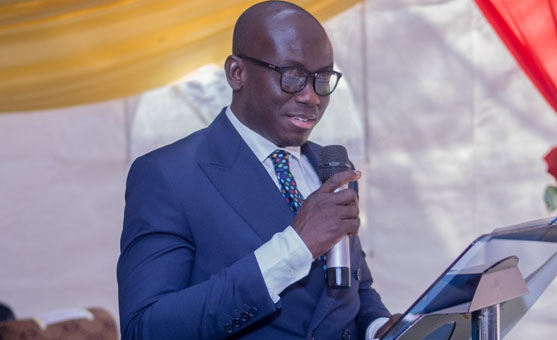Godfred Yeboah Dame, the youngest occupant of the Office of Attorney-General and Minister for Justice has, in the last two weeks, dimed the light on his shining performance. I have done only a couple of cases with him on the other side before and in his present office.
Many lawyers will confess he is simply good at his game, and feel proud that he is the man at the helm.
But it’s become difficult for many of us to associate his signature with those two letters; one conveying advice to the Auditor-General and another defending the advice deprecated as bizarre and unconstitutional interference in the exercise of the professional and independent mandate of the Auditor-General.
It is true the Supreme Court has confirmed that the Auditor-General or any independent constitutional body may access the services of the AG.
However, the caution in AMEGATCHER v ATTORNEY-GENERAL that such bodies like the Judiciary and Parliament should hire private lawyers of their choice where their position on an issue is in conflict with that of the Attorney-General ought to be preferred.
Justices Atuguba and Date-Bah affirmed that such bodies as CHRAJ, NCCE and NMC sue and are sued in their own name and not through the Attorney-General in order to avoid conflict of interest. The Auditor-General audits the accounts of the AG, Parliament and bodies on whose boards some MPs sit or chair.
Conflict of interest becomes inevitable if he must take advice or be represented by the AG in certain cases including a suit challenging the President’s sacking of Daniel Yaw Domelevo. It is equally untenable to insist that the Auditor-General’s Report is not a complete or final product, and therefore must not be published, unless Parliament has debated it.
Section 23 of the Audit Service Act’s mandatory requirement for publication of the Audit Report immediately it is delivered to the Speaker of Parliament is sound, constitutional and healthier for accountability. Finality of the Report is not subject to Parliament.
By article 187(7), the Auditor-General shall not be under the direction or control of any person or authority and may order recovery of monies, issue disallowances and surcharges as he deems fit. This, he does in the course of his work and not after the Report has been debated by MPs.
It is consequently plain that Parliament cannot vary, change, correct or add anything to the Report. If anyone feels aggrieved by his findings, the law directs them to appeal to the High Court, and not to Parliament, like Yaw Osafo Marfo and others have successfully done in the past. Those aggrieved sue the Auditor-General and not Parliament.
He is only supposed to draw Parliament’s attention to irregularities, which the MPs, representatives of the people ought to know, confront those ‘indicted’ for misapplying funds, stealing and other wrongdoing.
The MPs debate and may give directions, particularly institutional correction and exercise their oversight duty to monitor the implementation of recommendations including prosecutions to be done by the AG.
Parliament often does this job several years after the Report. But can you imagine a Speaker with blind loyalty to a party or government being in any hurry at all to pass the Report on to Parliament’s Public Accounts Committee if it indicts his party or government?
If people have been found to have stolen money in 2019, we must wait until Parliament finishes debating the Report in 2025 before we go chasing them to recover the money?
If we don’t answer the purpose for laying the Report for debate in parliament, we will not resolve this argument. The purpose is to notify representatives of the people about the findings and the debate is to help them monitor the implementation of the recommendations, not to change anything or direct the Auditor-General about anything in the Report.
Dear AG, abandon this cause and focus on what you have started in assisting the Auditor-General to recover misused and stolen money. I doubt you will contemplate a suit to be titled AG vrs AG for the Supreme Court to pronounce on this or attempt to sponsor an amendment to get what you seek.
CDD, Occupy Ghana and many citizens shall work to defeat any such project. What we currently have is best practice. Those audited participate in the process from start to finish, and if submitting the Report to Parliament is not in itself a publication, publication on the Auditor-General’s website is direct accountability to the people who fund the government.
Let’s even improve it so the audits will be timely, publication will be faster along with recoveries and prosecutions. Ace Ankomah, Prof H. Kwasi Prempeh and all your friends who have sued you, I mean government, over the removal of Domelevo say to ask if you will attempt to advise the Chief Justice in similar terms because the Judicial Service, like the Audit Service, is also part of the Public Services under article 190?
“Damn good lawyer Dame damned” was my initial topic. Let’s await the Auditor-general’s reply. And that is My Take.
Writer: Samson Lardy Anyenini
Editor’s Note: Samson Lardy ANYENINI is a Ghanaian lawyer and journalist who works for Multimedia Ghana’s Joy Fm. He hosts Joynews and Joy FM’s weekend current affairs news analysis Newsfile programme. He won the category of Best Journalist for 2019 GIJ Annual Awards.


Comments are closed.